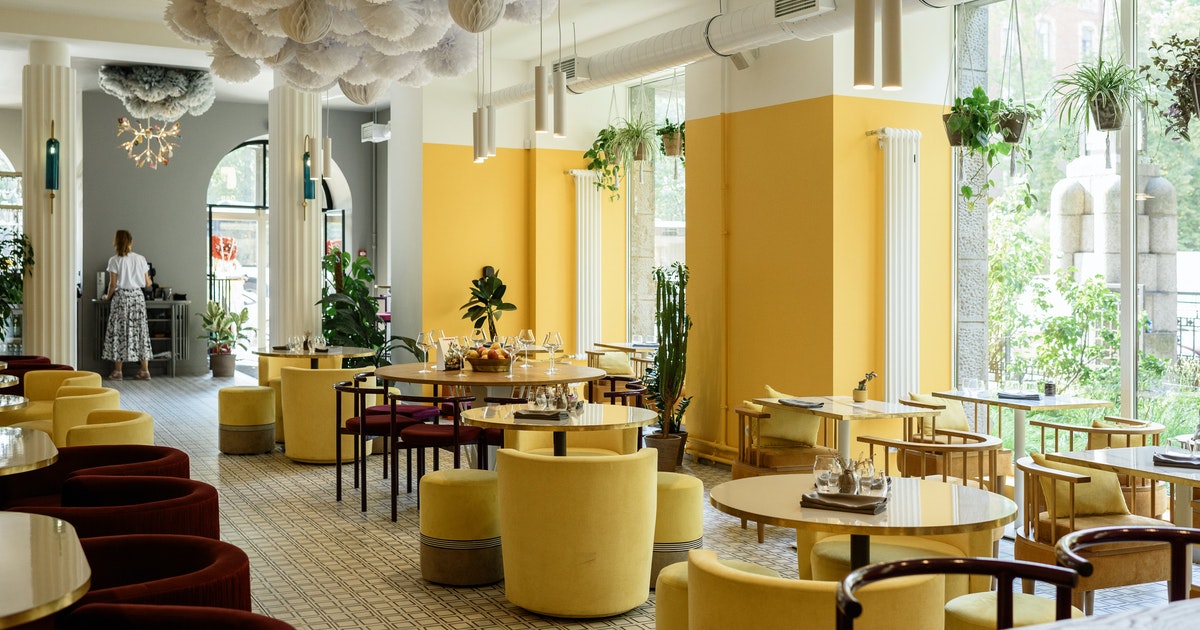
It’s been a hard 12 months for restaurants and for people who love them. And for many, the future remains uncertain.
Maryland Smith hosted a virtual panel discussion with restaurateurs to discuss how they’ve managed amid pandemic-era restrictions. The free webinar, part of the Maryland Business: Rebooted series, was moderated by Tim Carman, a James Beard Award-winning food writer and columnist for The Washington Post, and Maryland Smith Clinical Professor of Marketing Judy Frels.
They recalled the challenges, the pivots and the things they learned in the hardest time.
At Hollywood East Cafe in Wheaton, Md., staffing was trimmed when indoor dining was banned, a more cost-effective menu was adopted for carryout, and the restaurant closed two days a week to augment kitchen prep time, said owner Janet Yu.
In Washington, D.C., Open Crumb was earning 70% of its revenue supplying hot bar items to Whole Foods Market. When the pandemic ended self-serve prepared foods, chef and co-owner Peter Opare shifted to takeout, delivery and a family meal service, scaling up with an investment in a packaging machine.
D.C. Mexican restaurant Espita, meanwhile, leaned into grocery operations and off-premises ordering, later adding a new virtual brand – Ghostburger. Each pivot requires time and work, “same as opening a new concept,” said general manager Josh Phillips. But some pay off. Ghostburger made $26,000 in its first week, topping expectations, and now is here to stay.
In the lockdown, delivery apps like DoorDash and Postmates kept orders flowing, but charged high fees to customers and businesses. The District of Columbia eventually capped those fees at 15%, which “helped,” the restaurateurs said, but 15% is still hefty.
Jackie Greenbaum, who co-owns Little Coco's, Bar Charley and El Chucho in D.C., and Quarry House Tavern in Silver Spring, Md., has been encouraging customers everywhere to place orders directly with restaurants for takeout, not delivery. That message, repeated often in news reports, has resonated; 64% of consumers now say they prefer to order directly, according to the National Restaurant Association.
At Hollywood East, regulars have been coordinating orders with neighbors, with one person picking up a dozen orders.
Another message that has resonated: supporting your much-loved neighborhood restaurants by purchasing gift cards. “The money comes in; it's not immediately spent, so you give,” Carman said. “It's like a membership, almost, in a restaurant.”
Eric Shu-Pao Wang, co-founder-partner of D.C.’s Thamee, reminds people of the importance of gratuity. “Tip as if you were dining in, because all of that is going to the employees.”
And, ultimately, restaurants are important. “Restaurants are part of communities,” Phillips said. “When we treat restaurants as a part of a community, the community thrives, the restaurant thrives.”
Maryland Smith: Rebooted was launched in response to the pandemic, to offer residents and business owners in Maryland a free educational resource facilitated by Smith faculty. In free webinars, the program covers a range of topics, including strategy, accounting, marketing and retailing.
Media Contact
Greg Muraski
Media Relations Manager
301-405-5283
301-892-0973 Mobile
gmuraski@umd.edu
About the University of Maryland's Robert H. Smith School of Business
The Robert H. Smith School of Business is an internationally recognized leader in management education and research. One of 12 colleges and schools at the University of Maryland, College Park, the Smith School offers undergraduate, full-time and flex MBA, executive MBA, online MBA, business master’s, PhD and executive education programs, as well as outreach services to the corporate community. The school offers its degree, custom and certification programs in learning locations in North America and Asia.